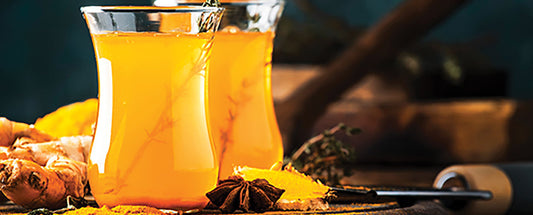7 Ways to reduce your risk of infection

Wash your hands frequently
One of the quickest ways to transfer bacteria to others is by not washing your hands, so ensure that you are washing your hands frequently with soap or alcohol-based hand sanitisers. Hand sanitisers are very effective and handy to keep around but they can be harsh on your skin, by washing your hands with soap for at least twenty seconds you can still clean your hands effectively. Make sure that you dry your hands with a hand dryer or paper towel and that you pop the used towel straight in the bin to stop any further contamination.
Be aware of your hands
Try to keep your hands out of your eyes and off your nose and mouth, it’s not easy, most of us do it subconsciously. Mucous membranes are the easiest way for bacteria and viruses to enter the body if you need to blow your nose or scratch an itch, use a tissue and then dispose of it properly as soon as you have finished.
Cover your cough or sneeze
Cover your cough or sneeze with a tissue or bent elbow. Not only is this common courtesy but infected droplets can travel in the air and infect others around you. Don’t use your hand to cover your mouth or nose and do not shake hands with others, some people may not be as diligent with their hygiene as you are.
Use hospital grade disinfectant
Use a hospital grade disinfectant or cleaning solution to wipe down common surfaces and do it frequently. Door knobs, fridge handles, keyboards, balustrades, remote controls, telephones and gaming controllers are just a few places where bacteria may be transferred on.
Drink plenty of water and eat healthily
Drink plenty of water and eat healthily, just because we are spending more time inside doesn’t give us the go ahead to overeat or lounge about. One of the best things we can do to is to keep our bodies healthy so we can fight off infections. Plenty of fresh fruit and vegetables are best, they are jam-packed with nutrients to keep us strong and healthy. Junk food only depresses the immune system, that’s the last thing anybody needs at the moment.
If you are unwell, stay home
By self-isolating where possible, the chance of others coming into contact with bacteria or viruses is minimised. People can respond to infection with varying intensity of symptoms, depending on age, race and pre-existing health status.
Get plenty of sleep
Get plenty of sleep and try not to stress. Keep your stress levels down by continuing on with your usual exercise regime and eat fresh, healthy foods. Keep some herbal teas handy such as Chamomile or Peppermint and take time to relax and unwind when you can. Stressing about things we have limited control over is pointless and takes its toll on our mental and immune health. Call a friend or an elderly loved one for a chat and to check up on their wellbeing too.
One of the quickest ways to transfer bacteria to others is by not washing your hands, so ensure that you are washing your hands frequently with soap or alcohol-based hand sanitisers. Hand sanitisers are very effective and handy to keep around but they can be harsh on your skin, by washing your hands with soap for at least twenty seconds you can still clean your hands effectively. Make sure that you dry your hands with a hand dryer or paper towel and that you pop the used towel straight in the bin to stop any further contamination.
Be aware of your hands
Try to keep your hands out of your eyes and off your nose and mouth, it’s not easy, most of us do it subconsciously. Mucous membranes are the easiest way for bacteria and viruses to enter the body if you need to blow your nose or scratch an itch, use a tissue and then dispose of it properly as soon as you have finished.
Cover your cough or sneeze
Cover your cough or sneeze with a tissue or bent elbow. Not only is this common courtesy but infected droplets can travel in the air and infect others around you. Don’t use your hand to cover your mouth or nose and do not shake hands with others, some people may not be as diligent with their hygiene as you are.
Use hospital grade disinfectant
Use a hospital grade disinfectant or cleaning solution to wipe down common surfaces and do it frequently. Door knobs, fridge handles, keyboards, balustrades, remote controls, telephones and gaming controllers are just a few places where bacteria may be transferred on.
Drink plenty of water and eat healthily
Drink plenty of water and eat healthily, just because we are spending more time inside doesn’t give us the go ahead to overeat or lounge about. One of the best things we can do to is to keep our bodies healthy so we can fight off infections. Plenty of fresh fruit and vegetables are best, they are jam-packed with nutrients to keep us strong and healthy. Junk food only depresses the immune system, that’s the last thing anybody needs at the moment.
If you are unwell, stay home
By self-isolating where possible, the chance of others coming into contact with bacteria or viruses is minimised. People can respond to infection with varying intensity of symptoms, depending on age, race and pre-existing health status.
Get plenty of sleep
Get plenty of sleep and try not to stress. Keep your stress levels down by continuing on with your usual exercise regime and eat fresh, healthy foods. Keep some herbal teas handy such as Chamomile or Peppermint and take time to relax and unwind when you can. Stressing about things we have limited control over is pointless and takes its toll on our mental and immune health. Call a friend or an elderly loved one for a chat and to check up on their wellbeing too.



